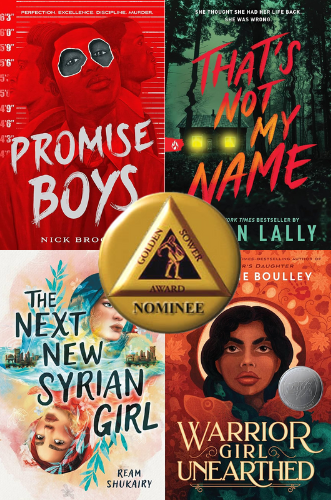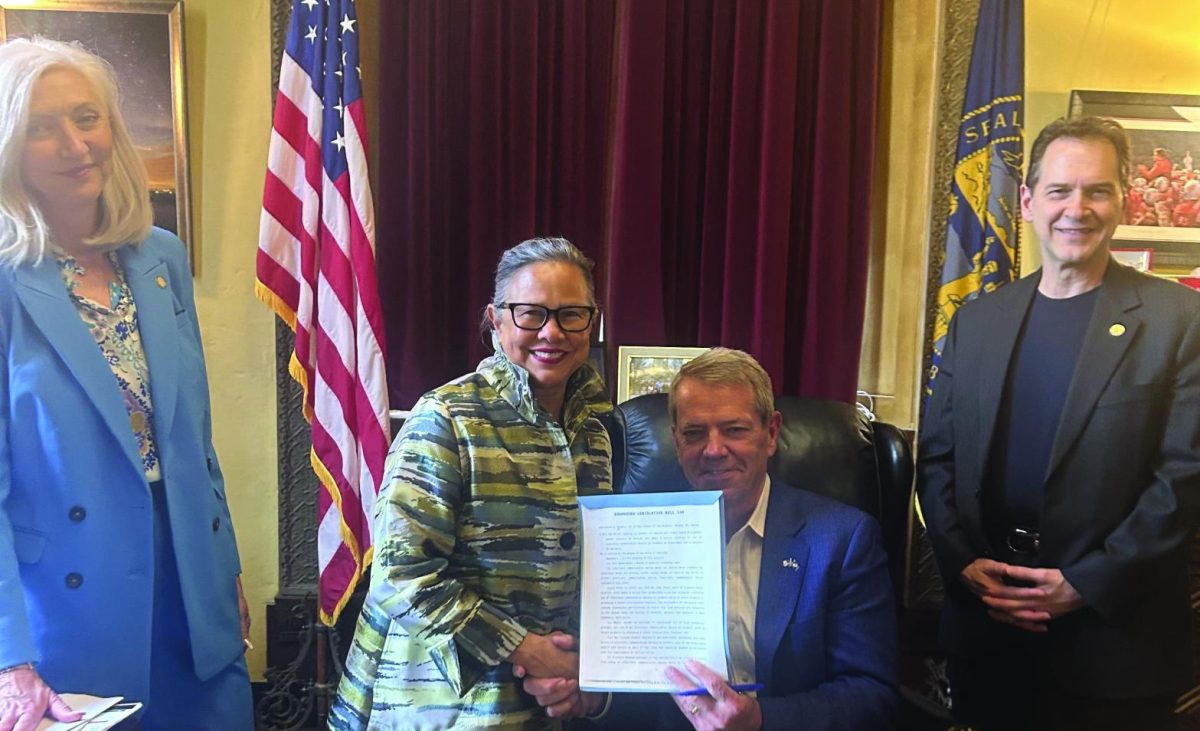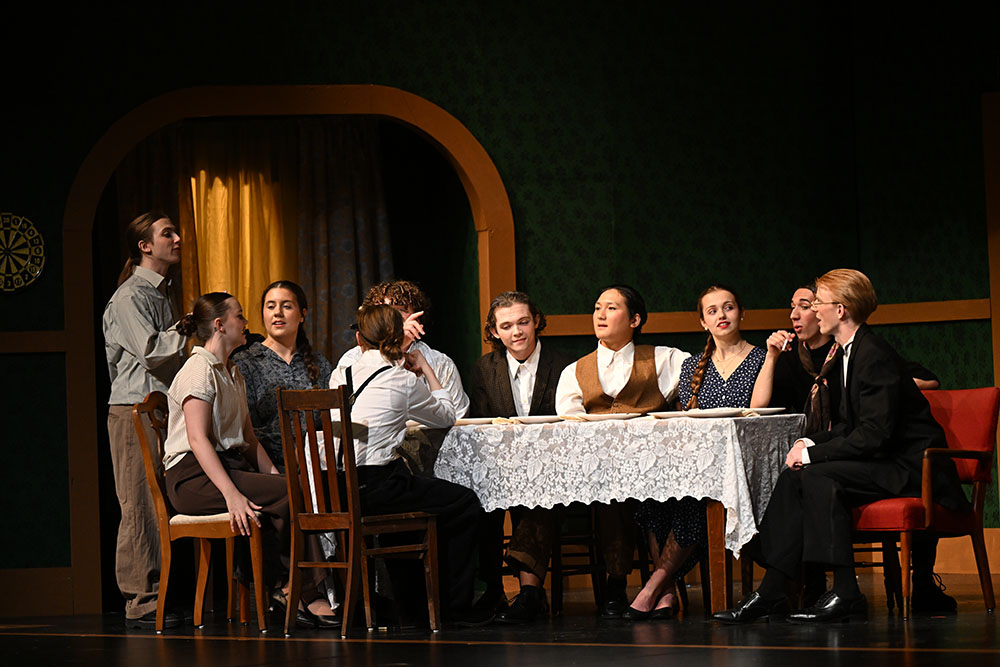
Golden Sower books have been a staple in Nebraska elementary and middle school libraries for decades. Many students who attended elementary schools in Nebraska may fondly remember the days when their librarian would read the Golden Sower nominees to the class, and then let the kids vote on their favorite one. That experience petered out as the kids grew older, as there was no category for high school-level books, but that has now changed.
The Golden Sower Award is a special book list specific to Nebraska, started in 1980. Its name is inspired by the bronze statue located on top of the state capitol. Similar to how a sower spreads seeds, the award aims to sow the love of reading amongst children.
Every year, librarians and teachers across the state select 10 books per category, aiming to choose ones that will appeal to kids of all ages and backgrounds. Students can then choose to read at least four and vote for their favorite.
In the past, there were three categories of books: Little Bluestem (K-2), Honeybee (3-5) and Meadowlark (6-8). This year a new category has been added for high schoolers, with the title of Bald Eagle.
Sara Friest, LSE’s librarian, is excited for high school students to participate. Because the original categories were targeted toward a younger audience, she hasn’t been able to promote many Golden Sower books in past years. With the addition of the Bald Eagle category, she can do that now.
“We finally have our own category of characters that are dealing with the same kinds of things that we’re dealing with as high school students,” Friest said.
Out of the 10 Bald Eagle nominees, there are a few that stand out to Friest. Those include “The Promise Boys” by Nick Brooks, “That’s Not My Name” by Megan Lally, “Warrior Girl Unearthed” by Angeline Boulley and “The Next New Syrian Girl” by Ream Shukairy. This group is composed of bestsellers, award-winning authors and intriguing stories. Each of these books represents a diverse set of characters as well, ones who are deaf, wrongly accused, indigenous Costa Rican, Chinese villagers and more.
“The Bald Eagle category has something for everyone,” Friest said.
Friest believes that Golden Sower books contribute key benefits, the first being the nomination of specific books. By doing this, it encourages young people to read the same things, fostering a sense of community over shared experiences.
“You’ll find other people who are reading those same books. So it just kind of connects us and brings us together,” Friest said.
In addition to that, Golden Sower books allow for student input and opinion during the voting process.
There are plenty of book lists out there, but the Golden Sower one is special because of the voice students are given in the selection of winners. On top of that, the Golden Sower nominees are chosen every year by fellow Nebraskans.
“I feel like it’s just easier to connect to those books because we kind of all live in the same place,” Friest said.
Most students who grew up in Nebraska probably recall their elementary school librarian reading Golden Sower books to the kids. Those memories could be “nostalgic” and “remembered fondly” by many. That experience may reappear now in high school, albeit slightly different, and could draw people toward voting for the Bald Eagle nominees this year.
The introduction of the Bald Eagle category will be ushering in some new activities at LSE. Friest has a few ideas in the works, for both encouraging reading of the nominees and voting. Nothing has been entirely fleshed out yet, but she does plan to host a voting event where students can get together and have fun.
As a whole, reading this year’s Bald Eagle nominees and voting for one’s favorite is highly encouraged by Friest. Golden Sower books can be a fail-safe way to select your next good read, so make sure to check out the nominees the next time you find yourself in the library.
“It kind of brings back that moment when [students] were younger, and now they can do it all over again with books that will connect with them at this stage of their life,” Friest said.



